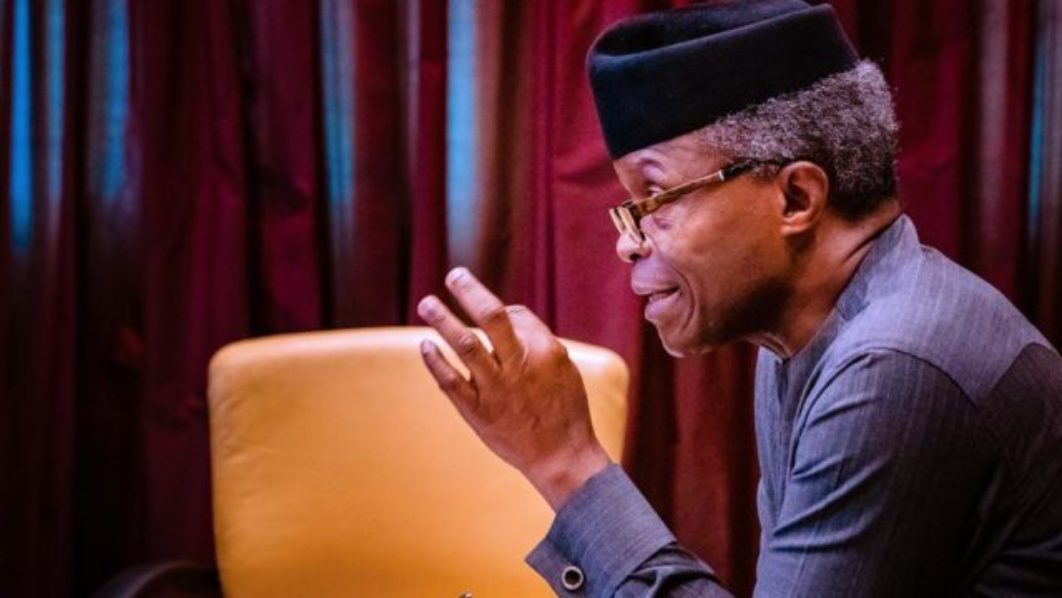
Vice President Yemi Osinbajo has advocated new reforms in the judicial process, particularly as it pertains to the appointment of judges to the Bench.
He stressed the need for a mandatory test for those aspiring to become judges.
Osinbajo, who spoke at a webinar titled, “Developing an Institutional Concept of Justice in Nigeria”, organised by Wole Olanipekun & Co, said that the reforms were very crucial in getting appointment of judges right.
According to him, “We must take a second look at the appointment of judges. The merit-based system is necessary. We need to do mandatory test for them. We need to look at how our judges are selected.
“It is not enough to rise through the ranks in the judiciary with judges going to the Supreme Court from the Appeal Court. We must be able to bring in practising lawyers and the academic to become judges. We owe it to ourselves to change the rules. Change is necessary and reform of our judiciary process should be urgent.”
The vice president further said that technology had changed the way business is done, stressing that digitalisation of trial processes is now more than ever before inevitable.
He agreed with Prof. Fidelis Oditah that sometimes, the manual process is quite faster than the technologydriven method but emphasised the need to rewrite the procedural rules of the judiciary.
In his submission, Oditah, who had emphasised that the nation’s justice system was far from the ideal, posited that COVID-19 had exacerbated the problem of justice administration system in Nigeria.
“We are part of global system and for investments to thrive, our justice system must be efficient. If not, we will lose credibility.
“A good criminal justice system does not fall from trees. It is the result of efforts by the government and stakeholders,” he said.
In his comment, the host, Chief Wole Olanipekun, lamented that what obtains is the system where we no longer have dissenting judgments in the country.
Olanipekun, who decried that judges of the appellate court were being appointed based on promotion, said: “I reckon that judges can be appointed from the academia and the Bar and not just based on promotion from one court to another.”
Also, past President, Lagos Court of Arbitration, Yemi Candide-Johnson, in his contribution, said a judge taking any kind of bribe could not be independent and fair, pointing out that such obsession with technicality subverts the points of law.
HOWEVER, Partner Hardwicke and Professional Commissioner, Judicial Appointments Commission, United Kingdom (UK), Brie Stevens Hoares, who listed the criteria that guides judicial appointments in the UK to include “leadership, exercising judgment, assimilating and clarifying information, among others, said that self-assessment, independent assessment and qualifying tests online and competency-based interview were parts of the tools employed to demonstrate competence and skills in the UK legal system.
The moderator, Bode Olanipekun, said that the virtual summit was part of the law firm’s contributions “towards building, not only a lasting justice institution for Nigeria, but also one that satisfactorily adapts to the ever-changing needs and expectations of citizens anchored on consistent and acceptable principles”.
